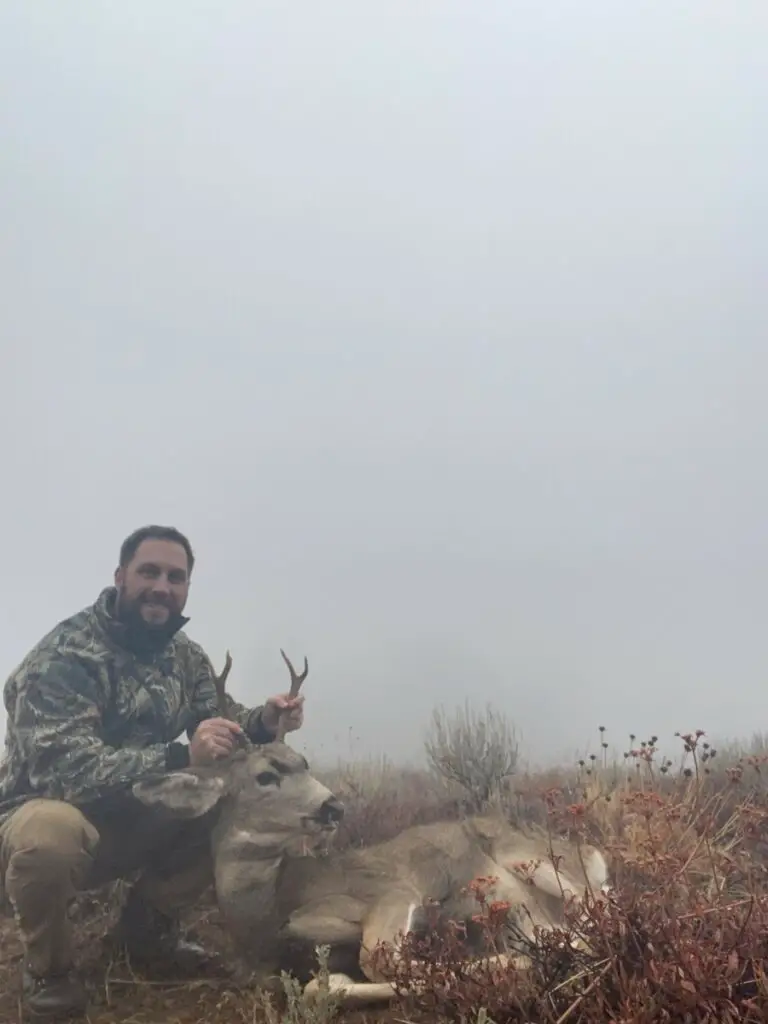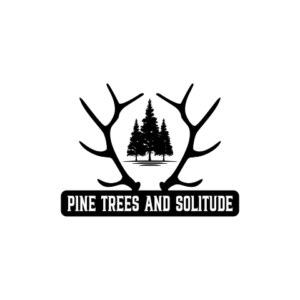
OTC hunting, also known as “general season” in my home state of Idaho, is a great opportunity to get out and hunt. For hunters that apply to units and don’t get picked, it is the saving grace to an otherwise wasted hunted hunting season. It is the same in a few other states as well.
The top western states for OTC or “Over The Counter” mule deer tags in the lower 48 are Washington, Oregon, Arizona, Idaho, and California.
There are 2 ways mule deer hunters see the world: Those that draw units, and those that don’t. There are those hunters that live in a great hunting state but only try and draw certain units every year. Good on you.
You should try and take advantage of those draw units. Residents are almost always given priority as well when it comes to draws.
But what happens when you don’t get the tag?
If you still want to go out hunting, then you are left with the over-the-counter tag (OTC), A.K.A “General season” tag. These are tags that the general public can go and buy with no unit limitations such as a those that exist with a draw unit.
There may be a cap for the total amount sold, but that will depend on your state. With the general season tag, there will be certain units/regions where a general season tag holder can go and hunt mule deer for the fall season.
Pros and Cons
Pros: One of the big pros of a general season tag is that you may be able to use the tag in multiple areas as long as they also are in the general season approved areas. Not a bad deal.
Cons: The biggest con of the general season tag, is the hunting pressure. There is probably quite a bit of people out there in a similar situation as you. So, you will have to be crafty and patient to hunt in the general season pool.
Go anyway
Another way to handle your rejection of the unit you were hoping to draw, is to use the season to go look for deer in that area anyways. I know you may think this is a far-fetched idea, and granted it is not for everyone.
But if you are not dead set on filling the freezer with some meat, then why not go scouting during the hunting season.
This is just about the most realistic way you can learn how the animals will react when there is real life pressure. Find a good glassing position and see where the animals are going.
That way next season, when you do draw a tag, you will hold all the cards on where to go find your mule deer, even when there is pressure.
General vs Draw tags
So what does it mean to draw a general deer tag? In most states all the big game are regulated to a T. State officials monitor and study populations of various species throughout the year and determine what healthy numbers are needed to maintian a healthy ecosystem.
When it comes to mule deer, there are some states that are more plentiful than others. Each state has different variables to consider including landscape, regional temperatures, predators, vegetation etc.
So states game management department will make determinations on how many animal can be harvested during a given year.
Where the numbers need to be closely regulated, the state’s game management department will issue a lottery “draw” system with a given number of tags.
This limits the amount of eligible hunters in a unit. That means a lot less competition and hunting pressure. It’s kind of like a first class ticket on a flight, but for hunting.
General Season (OTC: Over the Counter)
Now that you have some idea of the pros and cons of the general season, there are some things to keep in mind to work the general season in your favor. General season means more pressure and more people. So what can you do about that?
Strategy
I might start by offering some thoughts on a macro scale of thinking. The big picture. If your state has a general season that is near a major city, the chances are that much of the general season hunters from the city will be going to the places closest to that city.
You can probably cut down on competition by identifying a general season unit in the state that is the furthest away from major metropolitan areas.
In Idaho, for example, there is unit 39. This is the unit closest to Boise, the biggest city in the state. Unit 39 has a ton of hunters. I may want to identify another unit, or at least a far side and hard-to-reach part of the unit to give myself a better chance of cutting down on competition.
Tactics
Get off the beaten path
This may not be what you want to hear but it may be what you need to hear. With many hunters out there that are strictly road hunting from their vehicles and ATV’s, you may be able to get an edge on the mule deer by, getting off the beaten path.
This means seeing where people are not going with their vehicles. Look for ridgelines that are neglected. This may include ones you can not see from the road. Perhaps get that map out, virtual or otherwise, and see where the vehicle traffic noise may be pushing animals, and then hike in there.
Out west this almost certainly means scaling some steep terrain. It all comes down to how bad you want it.
Spend the most time in the field
It’s a simple matter of statistics. You can even your odds against the competition by being out there in the woods the longest. Now this means that you have to be attentive as well. Use the mid-day to glass the shady areas of the hillside and look for bedded bucks.
So many hunters seem to think that deer disappear to another universe during the mid-day. They are still out there somewhere. You can glass and try and find them from afar or you can start walking through thickets and closed roads very slowly in hopes of stumbling across a buck that may stand up and give you a shot. It happens.
The mental game
Many people dismiss the general season. I think it is the wrong attitude.
If you are like me, I could have the worst hunting trip possible: it’s still better than my best day at work. I just love being out there in the woods with an objective. So to me, being able to go out with a tag, is better than not.
It is true that general season may not yield trophy bucks on a regular basis, but it’s not impossible. I have seen a monster muley get taken in a heavily hunted area near Boise, Idaho.
If you tell yourself there is good buck out there and look for it, you will have an edge over others that have a condescending attitude.
Perseverance and patience is also key. The hunter that can stay the sharpest for the longest has an edge. If you can keep glassing, and use every hour you are in the field to finding deer, you will stack the odds in your favor.
General season premier tip
Hunt slowly and glass everything with extreme detail. I’m talking baby steps. You can never glass too much.
I kid you not, a hunting legend I met was handicapped. My father has a friend who was an avid sportsman before crashing his sportscar and becoming a paraplegic. He didn’t let this deter him from his passion. This man has put down a great number of Idaho big game from the comfort of his car.
Being handicapped he gets access to forest service roads and can shoot from his vehicle legally. He still has to be able to see the game though. And he does.
This guy cruises along at a very slow pace. He stops and glasses everything. If a stick looks like a mule deer leg, he glasses it until he is confident it is not a deer.
I encourage you to take a similar philosophy because this man proved that many hunters just blow past game close to the road.
This philosophy can serve you when mule deer hunting in heavily congested areas such as OTC units.
Non-Residents: Get ready for your out-of-state hunt.
Regulations
If you are going to be hunting out of state for an OTC opportunity, you will need to thoroughly go over the rules and regulations of the state in which you intend to hunt.
Find the state in question’s game regulatory website and ensure you have everything necessary to be in legal compliance.
If you have questions, call them up. That is what they do.
Another good resource to get the inside scoop would be to find forums or Facebook groups and start asking questions. Many hunters out there can tell you their first-hand experiences and recent changes to regulations.
Use a digital tool to scout the area where you are going to be hunting. A couple of great tools out there would be onX and Gohunt. Tools like these can help you see where public land is and how to access it. This is a must for exploring a new hunting spot that you don’t know well.
What is great about OTC is, that you can hunt it year after year if you want. This allows you to really spend a lot of time exploring the space.
Get in shape
If you are coming out west and going on a mule deer hunt for the first time, be prepared for some steep terrain. It’s a workout hunting mule deer. Especially since you probably have to get away from the roads where the majority of hunters will stay.
Bring the right gear.
Ensure you have a solid plan on how you will be living on your hunt. If you need a better idea on what to bring on your hunt, check out this article.
There are many ways to do it. There are campsites to pull your truck in and camp, but they probably will be taken by someone else. Be ready to pop a tent on the side of the road, sleep in your truck, or hike in and camp somewhere.
I will put a special word in for water here. In the west, you will probably be in the field away from towns. So you need to buy a water filtration system. There are many on the market, and places like REI sell them among other retailers.
These water pumps allow you to find a creek or pond and filter water so you can stay hydrated in the field.
Now you have a good basis for what to expect. Get involved, do your research, and get out there and find a mule deer.
If you enjoyed this article, here are some more helpful articles from Pinetrees And Solitude.
- What You Need For An Idaho Mule Deer Hunt
- Catch Mule Deer While They Are Active
- What Should I Bring Elk Hunting? Idaho List
- Hunting Elk In Timber: Tactics To Even The Odds
(This article was originally published on Pintreesandsolitude.com. If it is now published on any other site, it was done without permission from the copyright owner.)
